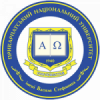Problems of Education of Mountain Children in Olena Tsehelska’s Literary Works
DOI:
https://doi.org/10.15330/jpnu.1.2-3.69-74Keywords:
upbringing, national education, literary worksAbstract
The article analyzes the literary works of a teacher, children’s writer, public figure of
Western Ukraine – Olena Tsehelska. It aims to study the system of national-patriotic, moral,
religious, labor upbringing of mountain children at the end of XIX – the first third of the XX
centuries. It was at this time when revived searches for a new curriculum, new methods and forms
of education, laying the foundations of the national-patriotic, civic education of Ukrainian youth.
The author stresses that one of the important factors of national education of youth has always
been fiction, particularly national bulleted text, which are literary works written by Oelena
Tsehelska. In fairy tales, short stories, novels the writer finds out about these family values that
have traditionally been famous for residents of mountainous terrain, as a community of spiritual
interests, harmony of relationships between representatives of different generations, caring for
parents and elderly people in the family, respect for ancestors, family harmony, respect for folk
traditions, faith in God that helped to survive in difficult circumstances of war periods, forced
relocation to a foreign country. Little heroes from works of Oelena Tsehelska possess such traits as
civic consciousness, patriotism, devotion to the interests of the people, the capacity for selfsacrifice, compassion for the poor, love of neighbor. Works written be this writer is an important
factor in the preservation of folk traditions, enriching current young generation with them what
becomes important in the development of civil society in Ukraine .






